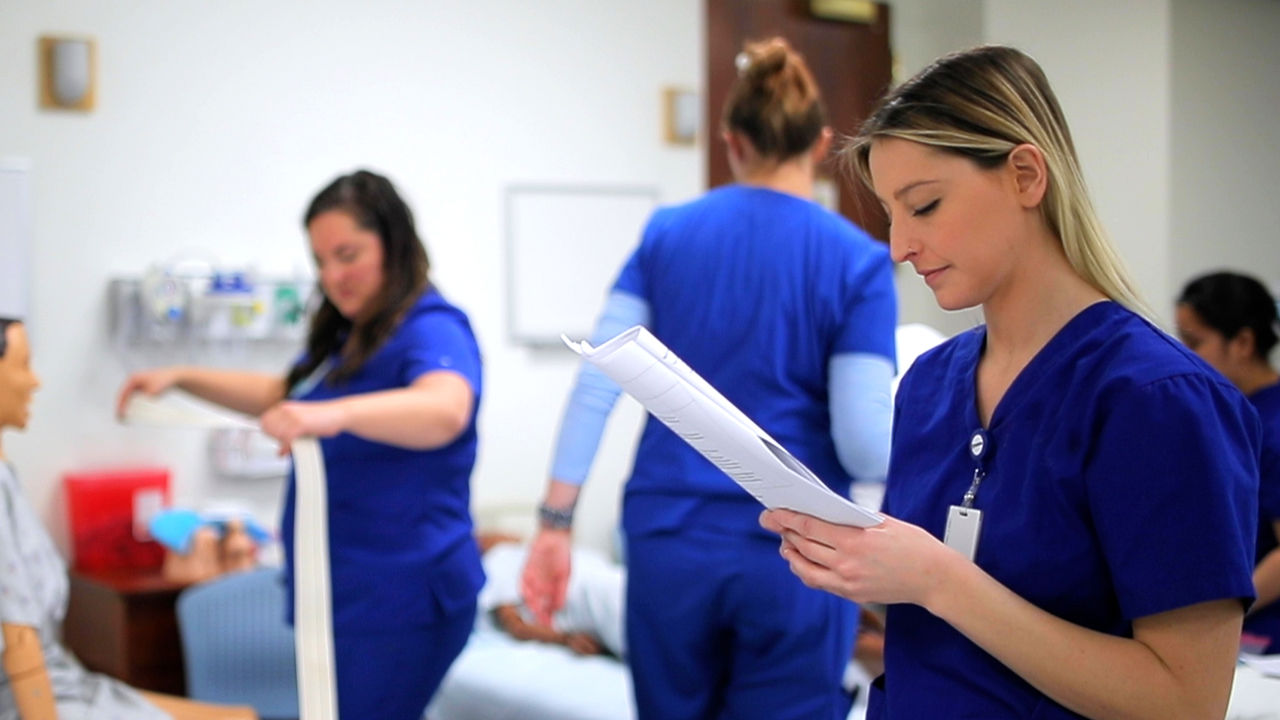Individuals with a desire to work with patients during one of the most transformative moments in their lives may be drawn to a career in obstetrics. Obstetrics nurses get to not only witness the joys of new life, but also play an essential role in ensuring safe deliveries and healthy outcomes for both mothers and their newborns.
Students interested in supporting expectant mothers throughout their prenatal and postnatal periods must start by developing the knowledge they’ll need to be successful. Completing a nursing degree program can help prepare graduates with the specialized skills to pursue obstetrics nursing jobs in various settings.
What Does an Obstetrics Nurse Do?
Obstetrics nurses play a vital role in caring for and supporting women during various stages of pregnancy, childbirth, and the postpartum period. In addition to educating expectant mothers about prenatal care, breastfeeding, and postnatal care, professionals within this field aim to ensure the health and well-being of their patients and their patients’ newborns.
The exact duties of an obstetrics nurse will vary depending on the facility they work for. For example, nurses who work in obstetrics clinics will provide care throughout the pregnancy and postpartum periods, while obstetrics nurses in hospitals, also known as labor and delivery nurses, provide care during the childbirth period. Common duties of obstetrics nurses may include the following:
- Educating patients about family planning
- Conducting prenatal screenings
- Preparing patients for labor and delivery
- Assisting obstetricians throughout the delivery process
- Supporting patients during delivery
- Evaluating newborns after delivery
- Taking newborns’ vital signs
- Cleaning, measuring, and weighing newborns
Where Do Obstetrics Nurses Work?
Obstetrics nurses work in various settings. Although many professionals in this field work in hospital labor and delivery units, they may also work in maternity wards, birthing centers, clinics that specialize in providing prenatal care, and community healthcare clinics, among other settings. Some obstetrics nurses work at a teaching hospital, where they provide education and training to the next generation of nurses.
Work hours for obstetrics nurses can vary widely depending on the facility they work for. For example, professionals employed at facilities that are open Monday through Friday during standard business hours, such as group medical practices, may work from 8 a.m. to 5 p.m. on weekdays. Those employed at facilities that provide 24-hour care, such as hospitals, may need to work nights, weekends, holidays, and on call.
Path to Become an Obstetrics Nurse
The first step toward becoming an obstetrics nurse is to complete an accredited registered nurse (RN) training program, such as an Associate Degree in Nursing (ADN) or a Bachelor of Science in Nursing (BSN). Upon completion of their degree, graduates often find that they’ve developed the knowledge and skills needed to provide evidence-based and patient-centered care.
Below are other common steps toward becoming an obstetrics nurse.
Pass the NCLEX-RN Exam and Gain State Licensure
Nurse training program graduates must pass the National Council Licensure Examination for Registered Nurses (NCLEX-RN) before they can become licensed RNs in their chosen states of practice. This computer-based exam is offered in a pass/fail format and is offered multiple times a year at testing centers across the United States.
Obtain Clinical Experience
Nursing professionals can start to work as obstetrics nurses after they’ve passed the NCLEX-RN exam. Although most professionals within this field work in public or private hospitals, employment opportunities are also available at birthing centers, group medical practices, and community care clinics, among other settings.
Pursue Certifications
Nursing professionals interested in pursuing advanced roles may find that completing one or more obstetrics nursing certification programs can help them toward their career goals. Certifications include the following:
- Inpatient Obstetric Nursing (RNC-OB)
- Neonatal Resuscitation Program (NRP)
- Certification in Electronic Fetal Monitoring (C-EFM)
Obstetrics Nurse Job Outlook
The U.S. Bureau of Labor Statistics (BLS) includes obstetrics nurses under the category of RNs. According to the BLS, employment of RNs is projected to grow by 6% between 2022 and 2032, a rate that’s faster than what’s projected for all occupations.
Approximately 193,100 job openings for RNs are expected to become available each year, on average, during that same reporting period. Many of these openings result from the need to replace RNs who exit the labor force, such as to retire or start a family, or who transfer to alternate occupations.
Complete Your Education and Become an Obstetrics Nurse
Being an obstetrics nurse is deeply rewarding, as professionals within this field have an opportunity to support new life, provide care to pregnant women during childbirth, and make a lasting impact on families. Obstetrics nurses get to not only witness patients’ excitement and joy as they prepare to bring new life into the world, but also work alongside other medical professionals to ensure that expectant mothers have safe deliveries.
Students interested in pursuing jobs in this nursing niche must start by developing the specialized knowledge and skills needed to guide women through pregnancy and childbirth. Completing an accredited nursing training program, such as an ADN or a BSN program from Denver College of Nursing, can provide graduates with the in-demand expertise needed to apply for obstetrics nursing positions in various clinical environments.
Discover how earning an ADN or a BSN from Denver College of Nursing can prepare you to pursue your dream of becoming an obstetrics nurse. DCN also offers online RN to BSN and Master of Science in Nursing (MSN) programs for nurses looking to advance their careers.
Recommended Readings
7 Tips to Polish Your LinkedIn Profile as a Nurse
Pushing the Profession Forward: Kendal Bailey Keeps Learning
Working as a Travel Nurse in Texas


